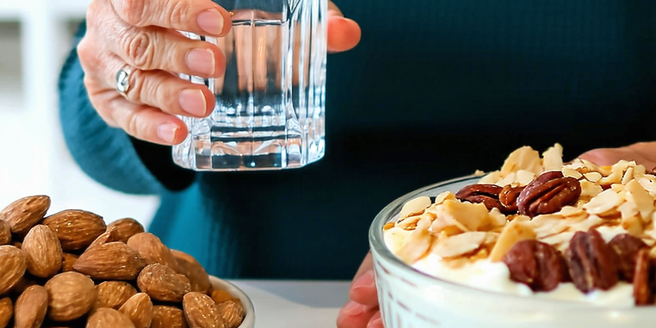Nutrition Assistance For Seniors

Understanding the Nutritional Needs of Seniors
As we age, our bodies undergo various changes that necessitate adjustments in our nutritional intake. Metabolism often slows down, and the absorption of certain nutrients may decrease, requiring a balanced diet rich in essential vitamins and minerals. Regular physical activity can also support these dietary adjustments. Seniors need to focus on foods high in fiber, protein, and calcium, alongside adequate hydration. Additionally, incorporating nutrient-dense foods can help mitigate nutrient deficiencies common in older adults. It is also important to limit the intake of sodium, sugars, and saturated fats to manage weight and maintain heart health. Consulting with healthcare providers for personalized dietary plans can be beneficial.
Common Nutritional Deficiencies in Older Adults
Many seniors face nutritional deficiencies due to dietary restrictions or health conditions. Calcium and vitamin D deficiencies can lead to weakened bones, increasing the risk of fractures. It’s crucial to be proactive about nutrition in the aging population to maintain overall health. Some may lack sufficient vitamin B12, impacting energy levels and cognitive function. Iron deficiency may also occur, leading to anemia and fatigue. Ensuring a varied and balanced diet that includes fortified foods or supplements can help mitigate these deficiencies. Regular check-ups and nutritional assessments are essential in identifying and addressing any dietary gaps.
Government and Community Nutrition Programs for Seniors
Seniors can benefit from various nutrition assistance programs aimed at supporting their dietary needs. Government initiatives such as the Supplemental Nutrition Assistance Program (SNAP) and Meals on Wheels provide essential resources and meals to older adults in need. It’s important for family members and caregivers to assist seniors in navigating these services. Many seniors are unaware of the eligibility criteria for these helpful programs. Community programs often offer nutritional counseling, cooking classes, and food delivery services. These programs not only alleviate food insecurity, but also promote social interaction and community engagement. Accessing these resources can improve the quality of life and health outcomes for seniors.
Healthy Meal Planning Tips for Seniors
Effective meal planning is crucial for seniors to maintain a balanced diet and support their overall health. Focus on incorporating a variety of colorful vegetables, lean proteins, and whole grains in daily meals. It is important to consider any dietary restrictions or allergies when designing meal plans for seniors. Portion control is vital to prevent overconsumption and manage caloric intake. Preparing meals in advance can save time and promote healthier eating habits. Encouraging the consumption of nutrient-rich, home-cooked meals rather than relying on processed foods will lead to better nutrition. Consulting a dietitian can provide personalized guidance.
The Role of Supplements in Senior Nutrition
Supplements can play a valuable role in bridging nutritional gaps in seniors’ diets. While it’s best to obtain nutrients from food, supplements like calcium, vitamin D, and omega-3 fatty acids may be necessary to support bone health and cognitive function. Additionally, certain lifestyle changes like increased physical activity and a balanced diet can further enhance the benefits of these supplements. It’s important for seniors to consult healthcare providers before beginning any supplement regimen, as some supplements can interact with medications. Proper guidance ensures that supplements complement, rather than replace, a nutrient-rich diet, supporting overall health and well-being.
Staying Hydrated: Essential Tips for Aging Adults
Adequate hydration is vital for seniors, as dehydration can lead to serious health issues, including kidney problems and cognitive impairment. Older adults may not feel thirsty as often and are at a greater risk of dehydration. Therefore, it’s important for caregivers and family members to stay vigilant about their loved ones’ hydration habits. Encouraging regular fluid intake throughout the day is essential, preferably in the form of water, herbal teas, or low-sugar beverages. Monitoring signs of dehydration, such as dry mouth or confusion, can prevent complications. Setting reminders and incorporating hydrating foods like fruits and vegetables can help maintain proper hydration levels.